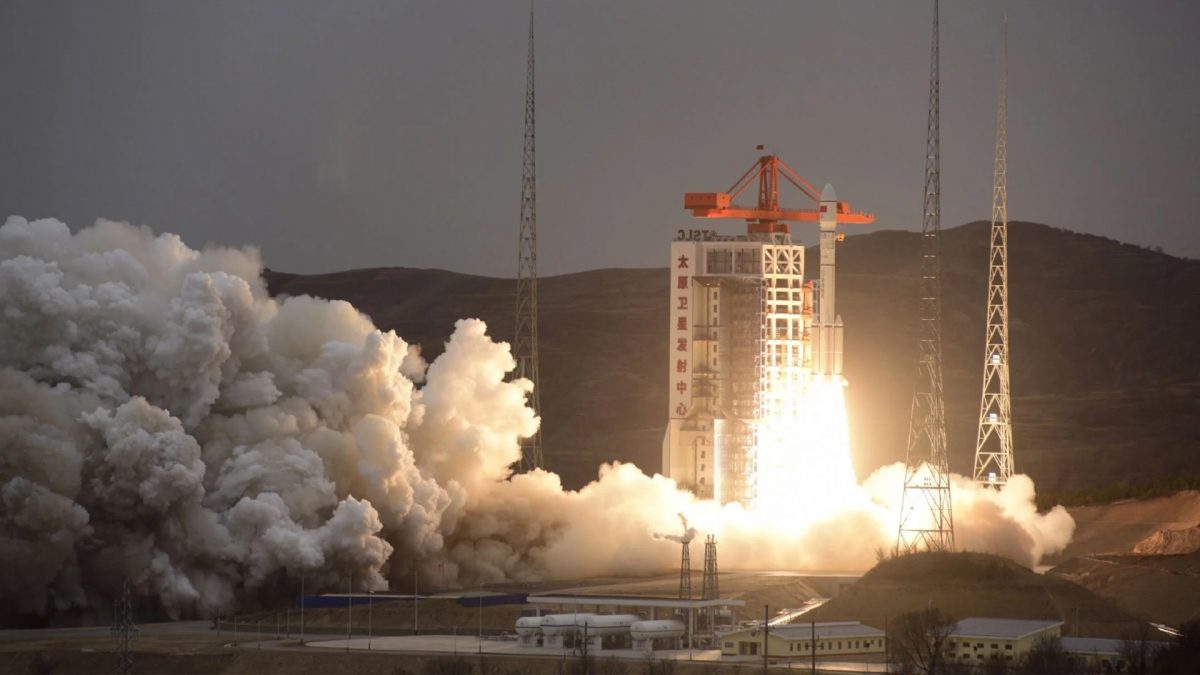China has successfully launched the first batch of 18 Qianfan satellites into orbit, marking a significant step towards establishing its own satellite internet network, similar to SpaceX’s Starlink.
This achievement was reported by China Central Television (CCTV) and is seen as a milestone in the country’s efforts to enhance its global satellite internet capabilities.
The Qianfan Megaconstellation Project
The Qianfan megaconstellation project, also known as the G60 initiative, was launched in 2023 with the objective of providing high-quality communication services across China. The project aims to deploy a network of over 15,000 low earth orbit (LEO) wide-screen multimedia satellites.
This ambitious plan is designed to deliver stable, high-speed internet services, particularly to remote areas with inadequate communication infrastructure, thereby bridging the digital divide.
Kang Guohua, a senior member of the Chinese Society of Astronautics and a professor of Aerospace Engineering at Nanjing University of Aeronautics and Astronautics, emphasized the importance of this project. He noted that the Qianfan constellation would significantly improve communication services in regions lacking proper infrastructure, effectively addressing the digital gap.
Launch Details and Future Plans
The 18 satellites were launched aboard a Long March-6 carrier rocket from the Taiyuan Satellite Launch Center in Shanxi province. This launch represents the first batch in the Thousand Sails Constellation plan, which is a part of the larger Qianfan project.
This year, the project aims to complete the launch of 108 satellites, with a target of achieving regional network coverage by the end of 2025 using 648 satellites. By 2027, the constellation aims to provide global network coverage, and by 2030, it plans to have all 15,000 satellites operational.
These satellites will offer integrated services such as direct mobile connections, enhancing the global reach and utility of the network.
Strategic importance
The successful launch of these satellites positions China as a significant player in the global satellite internet industry. Kang Guohua compared the Qianfan project to SpaceX’s Starlink, highlighting that the achievements of Starlink as a disruptor in the internet communication industry have been widely recognized.
Impact Shorts
More ShortsWith the launch and networking of the Qianfan constellation, China is making substantial strides in this field, potentially altering the competitive landscape of global satellite internet services.
The launch of the Qianfan satellites also demonstrates China’s growing capabilities in space technology and its commitment to enhancing its technological infrastructure. This development is part of China’s broader strategy to achieve technological self-sufficiency and reduce dependence on foreign technology, particularly in critical areas like satellite communication and internet services.
The deployment of LEO satellites, which typically operate at altitudes of 300km to 2,000km from the Earth’s surface, offers several advantages. These satellites are cheaper to deploy and provide more efficient transmission than those in higher orbits. Control over LEO satellites also carries major military implications, adding a strategic dimension to China’s ambitious project.
China’s launch of the Qianfan satellites marks a crucial development in its efforts to build a robust satellite internet network. As the project progresses, it is expected to provide widespread, high-speed internet access, particularly in underserved areas, contributing to the country’s technological advancement and digital inclusivity.
With plans to expand the constellation to 15,000 satellites by 2030, China is positioning itself as a formidable competitor in the satellite internet domain, challenging established players like SpaceX’s Starlink. It certainly will be a situation that its neighbours, particularly India, will be watching very closely


)

)
)
)
)
)
)
)
)



